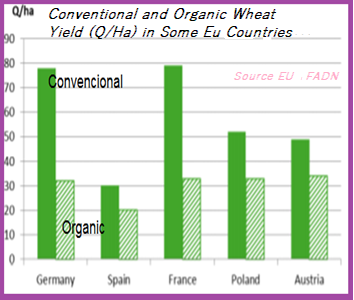Did Wrong Agricultural Policies Drive Sri Lanka to Bankruptcy?
Posted by Nazimi Acikgoz on 31/07/2022

There have been some who have based the Syrian crisis almost entirely on the negative effects of global warming. Some argue that the drought in the country is due to unsustainable water management. Critical issues in water use, such as the lack of monitoring of groundwater, and the transition to plants with high water consumption (cotton farming with high export potential!), were ignored by the authorities. Interestingly, some countries with water use plans and projects have already taken the necessary precautions. As a matter of fact, in 2013, Saudi Arabia announced that since 2016, the country has decided to ban wheat farming in order to save water.
Unfortunately, we follow an example in another developing country where wrong agricultural policies can lead the country to crisis: Sri Lanka. President Gotabaya Rajapaksa fled the country and sent his resignation after the people, who were uprising due to the economic crisis, stormed his palace. In May 2022, Sri Lanka went bankrupt due to its inability to repay its loans to international creditors, and IMF representatives began negotiations for a $3 billion bailout. So how did the country come to this situation?
At the end of 2019, tax cuts reduced government revenues, in 2020, the Covid-19 pandemic devastated the tourism industry, and skyrocketing inflation fueled the fire even more. In the spring of 2021, President Rajapaksa took a poorly understood decision, despite warnings from a group of scientists and agronomists: He banned the import of synthetic fertilizers and pesticides almost overnight, forcing Sri Lanka’s millions of farmers to engage in organic farming. NGOs that advocate the spread of organic agriculture and are actively supported by many international groups have a great influence on this decision. However, this fertilizer- and pesticide-free organic farming causes crop losses exceeding 50%, especially in grains such as wheat and paddy (Graphic!).
Artificial fertilizers used in plant production meet their nutritional needs such as phosphorus and potash. The negative impact of their excessive use on the environment is undeniable. However, their role in increasing productivity cannot be ignored. For this reason, their deficiency means a loss of productivity of around 30-40% for the producer–farmer, both in subsistence and export-oriented production. Deactivating the agricultural chemicals brought by organic agriculture may not cause problems in developed countries. However, in developing countries, it is inevitable that the reforms to be made in this context should be evaluated very well in terms of economic, political, and social aspects. As a matter of fact, many actions have been identified in the EU to make the Agriculture sector more sustainable[1]: Elimination of CO2 emissions, improvement of energy efficiency, 50% reduction in the use of chemical pesticides by 2030, reduction of at least 20% of the use of fertilizers by 2030, organic 25% increase in agricultural areas and a certain increase in organic aquaculture, etc[2].
While a Romanian journalist from the EU (Carmen Avram) described the situation as a “predictable disaster” in her column, he used the headline “Herald of the Green Deal disaster[3]: Bankruptcy caused by organic agriculture, today in Sri Lanka, tomorrow all over Europe”. The author continues, “Given that Romania uses the least amount of fertilizers and pesticides among the EU countries, the European Commission is asking us to reduce them by 50% by 2030. This means the deactivation of four agricultural inputs that ensure the sustainability of production. This will have a devastating effect on our productivity and efficiency, putting thousands of farmers at risk of bankruptcy. Well, when we try to fill the product gap that our farmers cannot provide with imports, logistics etc. Who can guarantee that we will not cause greater damage to the environment with these problems?”
Nazimi Açıkgöz
[1] https://www.euractiv.com/section/agriculture-food/news/organic-farming-improved-but-still-flaws-with-traceability-eu-auditors-find/
[2] https://nazimiacikgoz.wordpress.com/2021/05/26/ab-tariminin-gelecegi-icin-nasil-hazirlaniyor/
[3] https://www-national-ro.translate.goog/stiri-externe/fenomenul-sri-lanka-anunta-dezastrul-green-deal-falimentul-provocat-de-agricultura-ecologica-768576.html?_x_tr_sl=auto&_x_tr_tl=en&_x_tr_hl=en&_x_tr_pto=wapp
Leave a comment